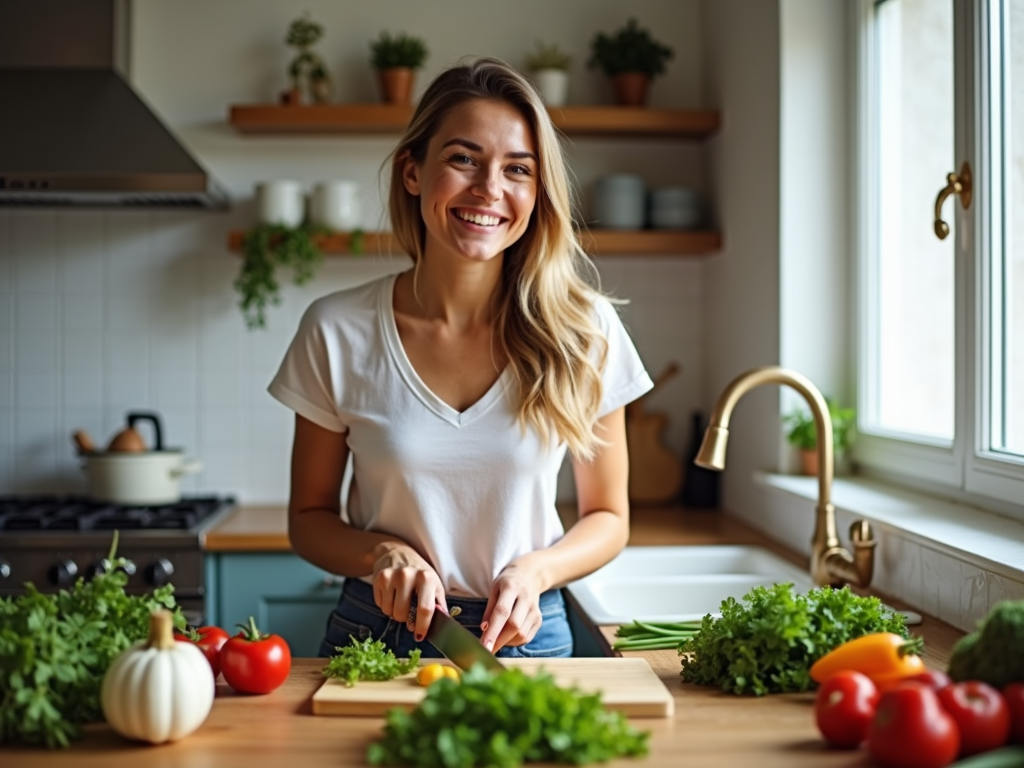How Diet Can Transform PCOS Symptoms: A Comprehensive Guide
March 13, 2025, 7:33 a.m.
Polycystic Ovary Syndrome (PCOS) affects millions of women worldwide, causing a range of symptoms from irregular periods to fertility issues. This article explores how dietary changes can significantly improve PCOS symptoms, offering hope and practical advice for those affected.
Introduction to PCOS
PCOS is a hormonal disorder that impacts women during their reproductive years. It involves multiple cysts on the ovaries, irregular menstrual cycles, and higher levels of male hormones called androgens. Women with PCOS often deal with symptoms like irregular or absent periods, excessive hair growth on the face or body (hirsutism), acne, weight gain, thinning hair on the scalp, and trouble getting pregnant. If left unmanaged, PCOS can increase the risk of serious conditions like type 2 diabetes, heart disease, and endometrial cancer.

The Role of Diet in Managing PCOS
A big part of PCOS is insulin resistance. This means the body doesn’t respond well to insulin, leading to higher insulin levels in the blood. High insulin can make symptoms like weight gain and irregular periods worse. The good news? Diet can help control insulin and improve how you feel. By focusing on foods that don’t spike your blood sugar quickly—known as low glycemic index (GI) foods—you can keep insulin levels steady. Low GI foods digest slowly, which helps avoid those sharp rises in blood sugar.
Here’s a quick look at some high GI versus low GI foods:
| High GI Foods | Low GI Foods |
|---|---|
| White bread | Whole grain bread |
| Sugary cereals | Oatmeal |
| Potatoes | Sweet potatoes |
| White rice | Brown rice |
| Candy | Fresh fruits |
Switching to low GI options can make a real difference in managing PCOS symptoms.
Specific Dietary Recommendations
So, what should you eat to tackle PCOS? Here are some simple, actionable tips:
- Load up on fiber: Fiber keeps your blood sugar in check and supports a healthy gut. Think vegetables, fruits, whole grains, and beans.
- Pick lean proteins: Protein keeps you full and helps maintain muscle. Go for chicken, fish, tofu, or lentils.
- Add healthy fats: Omega-3s can lower inflammation. Try fatty fish, flaxseeds, or walnuts.
- Cut back on refined carbs and sugars: These spike blood sugar fast. Skip white bread, pastries, and sodas.
- Drink water: Staying hydrated is key—aim for plenty throughout the day.

Lifestyle Adjustments to Support PCOS Management
Diet isn’t the only piece of the puzzle. Other lifestyle changes can boost your efforts to manage PCOS:
- Move your body: Exercise improves how your body uses insulin and helps with weight control. Aim for 30 minutes of activity—like walking, swimming, or dancing—most days.
- Keep stress in check: Stress can make PCOS symptoms worse. Try yoga, meditation, or just taking a few deep breaths when life gets hectic.
- Sleep well: Lack of sleep messes with hormones and insulin. Shoot for 7-9 hours a night to feel your best.

These lifestyle adjustments to support PCOS management work hand-in-hand with diet. For example, pairing a healthy meal with a brisk walk can double your progress. Small, consistent steps add up over time.
Fertility Considerations and Treatments
PCOS is one of the top reasons women struggle to get pregnant. It often disrupts ovulation, making it harder to conceive. But don’t lose hope—there are ways to improve your chances. Seeing a fertility specialist for PCOS treatment can open doors to personalized solutions. They might suggest medications like clomiphene or letrozole to kickstart ovulation. For some, in vitro fertilization (IVF)—where eggs are fertilized outside the body and placed in the uterus—becomes the answer. A fertility specialist can guide you through these options.

Diet and lifestyle play a role here too. Losing even 5-10% of your body weight can boost ovulation and fertility naturally. Combining these efforts with medical support gives you the best shot at building the family you want.
Personal Insights and Experiences
Real stories show how powerful these changes can be. Take Sarah, a 32-year-old who’s lived with PCOS for years. She says, 'I switched to low GI foods and started walking every day. My periods got regular, and I dropped 15 pounds. It was tough at first, but I feel so much better now.' Then there’s Emily, who found peace through yoga. 'Stress used to run my life,' she shares. 'But after adding meditation, my symptoms calmed down, and I feel in control.' These women prove that how diet can transform PCOS symptoms isn’t just theory—it’s life-changing.

Their experiences highlight a key truth: you don’t need to overhaul everything overnight. Start with one meal, one walk, or one quiet moment. Over time, those choices build momentum and hope.
Summary and Key Takeaways
Living with PCOS doesn’t have to feel overwhelming. By focusing on diet and lifestyle, you can take charge of your symptoms. Low GI foods help manage insulin, exercise boosts your body’s balance, and stress relief keeps hormones in line. If fertility’s your goal, a specialist can tailor treatments like IVF to your needs. The message is clear: small changes lead to big results. You’ve got this!
